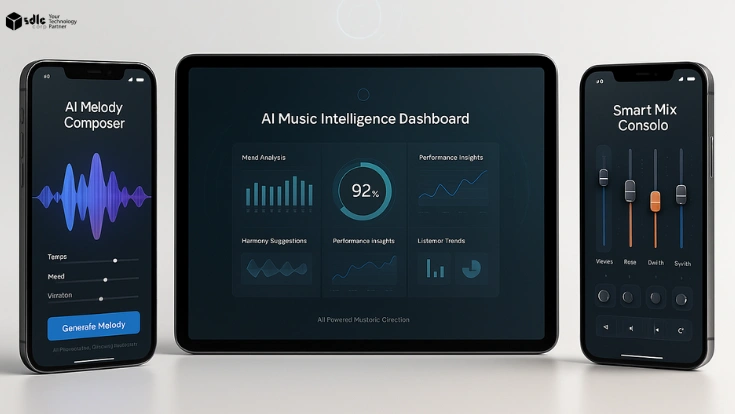Ownership has always been central to human civilization, defining wealth, authority, and identity. Traditionally, ownership meant having physical possession of assets such as land, gold, or intellectual property. However, with the rise of the digital age, ownership has expanded beyond the tangible, reshaping how people interact with assets in the virtual world.
From software licenses and online media to NFTs and decentralized digital identities, the concept of ownership is undergoing a profound transformation. This shift is driven by advancements in blockchain technology, cryptographic security, and decentralized ecosystems, allowing individuals to have true control over their digital assets.
This article explores the evolution of digital ownership, its challenges, and what the future holds in a world increasingly driven by digital assets.

1. The Early Days of Digital Ownership
Software Licensing and Digital Media
Before blockchain technology, digital ownership was entirely centralized. Companies controlled software, music, and video content, granting users access rather than actual ownership.
- Software Licensing: Users could purchase software but were limited by restrictive licensing agreements, meaning they did not own the product outright.
- Digital Music & Video: Platforms like iTunes and Netflix allowed users to access media but never gave them full control over their purchases.
Although convenient, this model left users dependent on service providers, who could revoke access at any time.
Also Read: The Role of Blockchain in Revolutionizing Digital Credentials and Certification
2. The Shift to Cloud-Based Ownership
With the rise of cloud computing, digital ownership moved further away from individuals.
- Streaming Services: Platforms like Spotify, Netflix, and Kindle redefined how users consumed content. Instead of owning files, users paid for access.
- Cloud Storage & SaaS: Google Drive, Dropbox, and other cloud services allowed users to store data remotely but under the provider’s control.
While cloud-based models increased accessibility, they also reinforced centralized control, limiting how users could manage or transfer their digital assets.
3. The Emergence of Blockchain and Decentralized Ownership

The introduction of blockchain technology disrupted traditional digital ownership by introducing decentralization and immutability. Unlike centralized systems, blockchain allows individuals to truly own digital assets, independent of intermediaries.
NFTs (Non-Fungible Tokens): Digital Collectibles and Ownership
NFTs have revolutionized digital ownership by allowing assets such as art, music, and virtual real estate to have provable scarcity and authenticity on the blockchain.
- Artists and creators can tokenize their work, ensuring they receive royalties on every sale.
- Gamers and collectors can own unique in-game assets that hold real-world value.
Unlike traditional digital purchases, NFTs cannot be revoked or duplicated, giving users full control over their assets.
4. Tokenization of Real-World Assets
Blockchain is not just changing ownership in virtual spaces—it is redefining how real-world assets are managed and transferred.
Real Estate & Fractional Ownership
- Real estate can be tokenized, allowing investors to purchase fractional ownership in properties.
- This opens access to high-value assets without the need for large capital investments.
Decentralized Finance (DeFi) & Ownership of Financial Instruments
- DeFi allows users to stake, lend, and trade digital assets without intermediaries.
- Ownership of stablecoins, governance tokens, and synthetic assets creates new financial models.
By integrating blockchain into traditional markets, tokenization makes assets more accessible, liquid, and transparent.
5. Digital Identity and Self-Sovereign Ownership
Beyond assets, blockchain is reshaping digital identity ownership. Today, most online identities are controlled by corporations (Google, Facebook, banks), but self-sovereign identity (SSI) solutions aim to change that.
- Users own and control their digital identities rather than relying on third parties.
- Personal data, credentials, and health records can be verified on the blockchain without intermediaries.
- Decentralized identity wallets allow users to log into platforms without exposing private information.
This ensures greater privacy, security, and autonomy in the digital world.
Also Read: Blockchain Developers’ Role in Enhancing Digital Content Rights
6. Challenges of Digital Ownership

Security Risks and Hacks
While blockchain enhances ownership security, private key mismanagement can lead to irreversible loss of assets. Users need to adopt secure storage methods such as hardware wallets and multi-signature authentication.
Legal and Regulatory Concerns
Many jurisdictions are still catching up with the concept of digital ownership.
- NFT copyright laws are still evolving.
- Governments are exploring regulations for tokenized real-world assets.
- DeFi taxation and ownership rights remain unclear in many countries.
Adoption and Technological Barriers
Although blockchain enables true digital ownership, mass adoption depends on usability improvements.
- Users need simple wallet interfaces and secure recovery options.
- Developers must build scalable blockchain solutions that support mainstream adoption.
Also Read: Blockchain and NFTs: The Future of Digital Collectibles and Ownership
7. The Future of Digital Ownership
The evolution of digital ownership is still in its early stages, with several innovations expected in the coming years.
Metaverse and Virtual Asset Ownership
As the metaverse expands, ownership of virtual land, digital goods, and avatars will become mainstream. Platforms like Decentraland, The Sandbox, and Otherside are pioneering these digital economies.
AI and Decentralized Content Creation
The rise of AI-generated content will introduce new forms of digital ownership for AI-created assets. Blockchain will ensure that ownership rights and royalties remain verifiable.
Cross-Chain Interoperability
Future developments will allow users to own digital assets across multiple blockchain networks, enabling seamless transactions and asset transfers.
Universal Digital Identity Standards
Blockchain-based digital identities will replace traditional login systems, ensuring users retain full control over their personal data while enhancing online security.
Transform Your Business with Blockchain Solutions!

Conclusion
The concept of ownership is evolving from physical possessions to digital assets, driven by blockchain technology and decentralized ecosystems. While traditional models relied on centralized control, blockchain development services have introduced true ownership through NFTs, tokenized assets, and self-sovereign identities.
As industries adopt blockchain-powered ownership models, individuals will gain greater control, security, and flexibility over their assets. However, challenges such as regulatory uncertainty, security risks, and user adoption must be addressed for the full potential of digital ownership to be realized. This is where blockchain development services play a crucial role in building secure, scalable, and compliant solutions.
With advancements in metaverse economies, AI content rights, and decentralized finance (DeFi), digital ownership is set to become an integral part of the future economy. By leveraging custom blockchain development services, businesses can reshape how value is created, stored, and exchanged in a connected world, driving innovation across multiple industries.
Also Read :
Blockchain and NFTs: The Future of Digital Collectibles and Ownership
How GameFi is Redefining Ownership in Gaming
Integrating Blockchain in Metaverse Games: A New Era of Digital Ownership
FAQs
What is digital ownership?
Digital ownership refers to the rights, control, and possession of digital assets, such as music, videos, digital art, virtual items, or even virtual land. It typically involves having access to or control over a digital file or property in a way that is recognized and protected by law or technology.
How has digital ownership evolved over time?
- Digital ownership has evolved from simple file downloads to more complex forms of ownership, including virtual goods, NFTs (Non-Fungible Tokens), and blockchain-based assets. The shift has moved from ownership based on physical storage to decentralized models where digital ownership can be tracked, verified, and transferred on blockchain platforms.
What are NFTs, and how do they relate to digital ownership?
NFTs, or Non-Fungible Tokens, are unique digital assets verified using blockchain technology. They can represent ownership of digital goods like art, music, videos, or even virtual real estate. NFTs offer a way to prove and transfer ownership of digital items, ensuring that they are one-of-a-kind and cannot be duplicated.
How does blockchain technology impact digital ownership?
Blockchain technology allows for secure, transparent, and immutable records of digital ownership. By using a decentralized ledger, ownership of digital assets can be verified without the need for a central authority. This enables users to buy, sell, and trade digital assets with confidence that ownership is accurately tracked.
What are some examples of digital ownership today?
- Music and Video: Streaming services and platforms like Spotify and YouTube offer access to digital content, but users don’t technically “own” it. In contrast, platforms using NFTs allow creators and consumers to have true ownership of digital content.
- Virtual Real Estate: Platforms like Decentraland or The Sandbox allow users to purchase and own virtual land, which can be used for gaming, advertising, or even virtual storefronts.
- Gaming Assets: In games like Fortnite or World of Warcraft, players can own in-game items (skins, weapons, characters) which are traded or sold within the game’s ecosystem.




